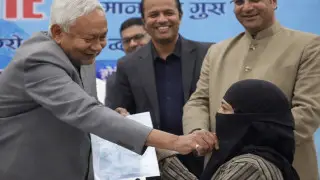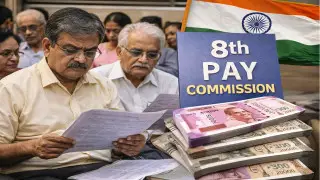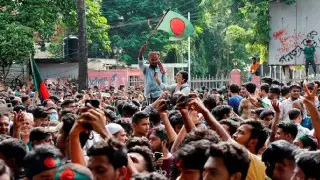
Kolkata High Court lawyers protest against the sexual assault, murder of a PG trainee doctor. (ANI)
New Delhi: The Central Bureau of Investigation (CBI) has appointed two distinguished women officers to lead the probe into the Kolkata rape-murder case involving a prominent doctor. These officers, renowned for their expertise in handling high-profile cases, are set to bring their experience to this critical investigation.
Sampat Meena, a 1994 batch IPS officer from Jharkhand, will oversee the investigation. Known for her pivotal role in the Hathras and Unnao rape cases, Meena brings a wealth of experience to the table. As an Additional Director, she will lead a team of 25 officers, focusing on strategic oversight and coordination.
Joining her is Seema Pahuja, a seasoned officer who also contributed significantly to the Hathras case. Pahuja, renowned for her success in solving the notorious Gudiya case in Himachal Pradesh, will handle the on-ground investigation. The Gudiya case, involving the rape and murder of a Class 10 student, was a complex investigation that ultimately led to the conviction of the accused through advanced DNA technology.
In 2017, Pahuja and her team solved the Gudiya case, where the victim had been abducted and murdered in a dense forest area. Despite initial challenges, the CBI used cutting-edge DNA matching techniques to identify the perpetrator, Anil Kumar, who was sentenced to life imprisonment in 2021.
The team also achieved notable success in the 2017 Unnao rape case. BJP leader Kuldeep Singh Sengar, who was later expelled from the party, received a life sentence for the gang rape of a 17-year-old Dalit girl. Sengar was also convicted for the death of the girl’s father while in judicial custody.
The 2020 Hathras case, which sparked widespread outrage, involved the brutal gang rape of a 19-year-old woman by four men from an upper caste. The victim succumbed to her injuries in Delhi's Safdarjung Hospital. The case drew public backlash due to the controversial cremation of the victim’s body by the Uttar Pradesh Police without family consent.
Three of the accused in the Hathras case were acquitted, and the fourth, Sandeep Thakur, was convicted only for culpable homicide, not for rape or murder. The judgment highlighted inconsistencies between the victim’s statements and forensic evidence, leading to criticism of the police handling of the case. In response to public outrage, the state government suspended five police officers, including the Superintendent of Police.













Copyright © 2025 Top Indian News
